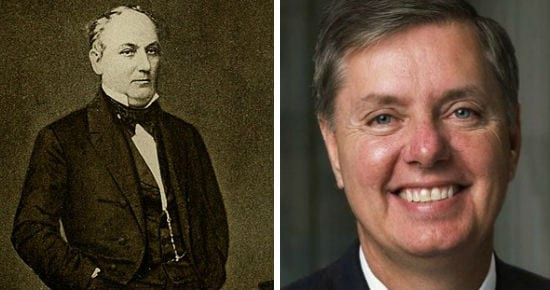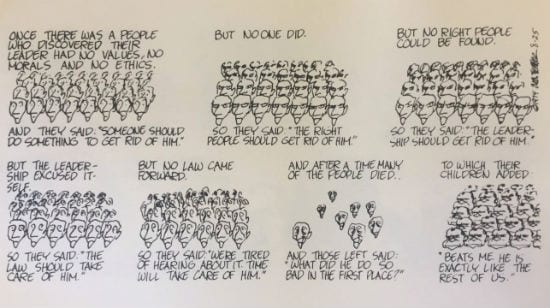"You have the luxury of not knowing what I know. … You don't want the truth because deep down in places you don't talk about at parties, you want me on that wall, you need me on that wall."
The above is from the famous speech by Jack Nicholson's character in Aaron Sorkin's A Few Good Men. Nicholson's Col. Jessep was a "tough" guy in the sense of "tough" conveyed by the current euphemism for torture: "tough interrogation techniques," which is to say tough in the sense of "brutish, counterproductive and not too bright."
It's worth noting that "the wall" that Nicholson's Col. Jessep was defending was Guantanamo Bay, which means the truth that Jessep can't handle is this: Nobody needed him on that wall. Controlling that tiny slice of Cuba used to stand as the last line of defense between us and … well, between us and not controlling that tiny slice of Cuba. In any case, after decades of military service on "that wall," we were ultimately unable to defend Guantanamo from lawlessness and tyranny because we put it there ourselves.
All of which is to say that The Los Angeles Times was asking the right question yesterday in the editorial, "Do we use torture?" The answer to that question is not something that any American has the luxury of not knowing.
The Times notes that the Bush administration has produced "ambiguity about a subject that cries out for clarity." I think that ambiguity is deliberate. I figure on one end of the spectrum there are X-percent of us who are completely opposed to torture, and on the other end a similar percentage of us who have no qualms about it at all. The rest of that spectrum is a big chunk of people who don't approve of it, but don't want the responsibility of disapproving of it either. They prefer to have, as Col. Jessep put it, "the luxury of not knowing."
President Bush's deliberate ambiguity about torture is partly a matter of legal CYA. The Geneva Conventions are the law of the land — binding, American law — so he can't flout them openly. But this deliberate ambiguity is also a bargain struck with that middle swath of the spectrum. "We don't torture," Bush says, winking broadly and crossing his fingers, and that seems to be good enough for them. Maybe they don't fully believe it, but they want to believe it — or at least they want to live in a world in which they could fully believe it — so they go back to luxuriously not thinking about it.
The somewhat hopeful thing is this: I believe these folks in the middle can be persuaded to come over to our side — that if they can be made to acknowledge what it is they're trying not to know then they will come to oppose the perverse use of torture. I do not think they can be persuaded in the other direction. They may now be acting like the citizens of Sunnydale, desperately denying that the monsters are real, but they would never choose, instead, to become monsters themselves. Take away the deliberate ambiguity and Mitt Romney's despicable "double Guantanamo" nonsense won't produce much applause. (At least, I hope not.)












